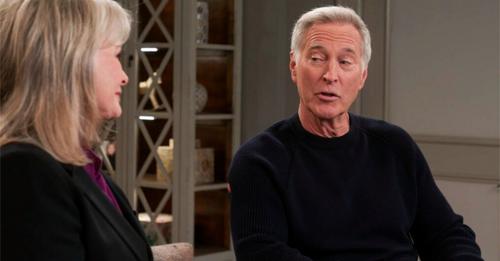-
Posts
2,393 -
Joined
-
Last visited
-
Days Won
91
richardmurray's Achievements
Single Status Update
See all updates by richardmurray
-

The article linked below said a lot. What are the points:
pay to view streaming platforms is what big media in the USA <big media meaning the largest media concerns by fiscal revenue or scale of viewership> is enforcing. I still agree with BEinsports ceo, streaming needs to be free like broadcasting. I think having people pay for streaming is the financial error. I Think streaming is better free, especially in the USA as the usa market is used to it.
The relationship to media in the USA from someone who is five years old today to someone ninety five today is such a vast swing that media in the USA is literally organizing or planning for the five year old who will be ninety five one day. The article misses the role of immigration. Outside the USA broadcast media is usually absent or negligent. PEople forget, most countries never had a PBS. Most countries never had cable stations. Most countries populace has always had to pay for USA media content. So , the immigration populace in the USA culturally supports buying media, cause they are used to it.
It isn't mentioned in the article, but one of the realities of the business community/private industry/free market capitalist culture in the USA is the heritage of following, especially in media. USA media has rarely had a set of individual daring firms. MEdia firms in the USA copy each other/follow each other to their dooms, historically. The idea of changing the soap operas, or making them more interesting was too daring for media firms in the usa. The problem with statistics side art is statistics can tell you what people are doing relating to art, but it usually guides you away from what you need to do to reimagine successfully.
I concur to the student of media in the article. The mid 1990s and the reality television era coincided to the facebook/twitter era coincided to the death of non special effects films being made mostly. Audiences in the USA during the 1990s were being given a few key things: 1)the ability to make fun of people , whether famous or not, in the public eye in a daily way 2)special effects laden films whose visual stimulus overcame plot or story in ticket sales 3) the role of social media posts over letters or phone calls which meant brevity/publicity/high speed in communication became natural for many people in the USA. Sequentially, soap operas which have moments of laughter but are not meant for self deprication, have no high production value special effects, are slower paced, long form tales, which use a private storytelling to be displayed only on the privy of the show , are against alot of the momentums by user experience.
I disagree with the notion that a lack of stay at home parents exists in the USA. Too many people are financially poor in the USA. I argue more parents are stay at home than in the 1960s as a percentage of the whole. but those parents aren't interested in a soap opera and moreover, is financially negative. PEople forget, that the main audience for broadcast media in the USA was the immediate post world war II white community in the USA which was very opulent. We forget that many blacks in the USA in the 1950s 1960s didn't have televisions. so, the financial positivity of the viewership of broadcast media in the USA of the 1950s 1960s where the soap operas come from was racially, monophenotypical/ had a larger percentage of financial positives.
The tragedy of this article is it shows how cable is clearly still alive as a medium while many in media have suggested the usa has moved on from cable. it shows how the reality is rarely spoken in modern media in the usa. I repeat, at some point the cable services will figure out how to integrate the streaming services. The streaming services don't want it cause it undercuts their competition with each other. The problem for paid to view streaming is it can only make money by growing subscribers. The whole point of commercials is the commercials pay for the show to be viewed freely, with breaks. Before commercials , firms financed shows whole but that is expensive and too much for most firms. PRoctor and Gamble is a pharmaceutical firm that makes a lot of money.
I conclude with the strength of telenovelas in latin america. As well as the fantasy shows, game of thrones, as fantasy soap operas. It isn't that soap operas are dead in the USA but they are modulated now. Whereas in the past, humans in a modern setting, with conventional drama was adequate. But in modern USA you need dragons/elves/scenes of mythical war/fantastical extravagance/characters that have insane obsessions that mirror the engineered reality tv chaos to have a soap opera.
https://www.tvinsider.com/1055354/soap-opera-daytime-tv-decline-cancellations/
-

Great share Nike, the biggest absence in the article for me is the problem with opportunity in the arts in the usa. Very few media firms in the usa are standalone, nearly all are part of a larger network of media entities under a firm. If you take out broadcast television stations/cable stations/streaming stations that are not owned by a media conglomerate. How many media entities exist in the usa? pbs is the only broadcast station that is solely a broadcast station. it isn't part of a conglomerate. All the cable stations are part of a conglomerate outside local cable stations , like in NYC for example. All the streaming services with a percent of the streaming audience are part of conglomerates. so... I argue the lack of unconglomerated media properties is part of the problem with this issue that the article didn't state. If the broadcast television stations were unconglomerated like PBS I am certain soap operas would not be streamed, but will have been artistically worked on to improve. My larger thoughts:) https://aalbc.com/tc/profile/6477-richardmurray/?status=2017&type=status
-



.thumb.jpg.afc88dfee9cd2927de0c440601caac13.jpg)



.thumb.jpg.ed52910791d00308abb8c218695bec88.jpg)
